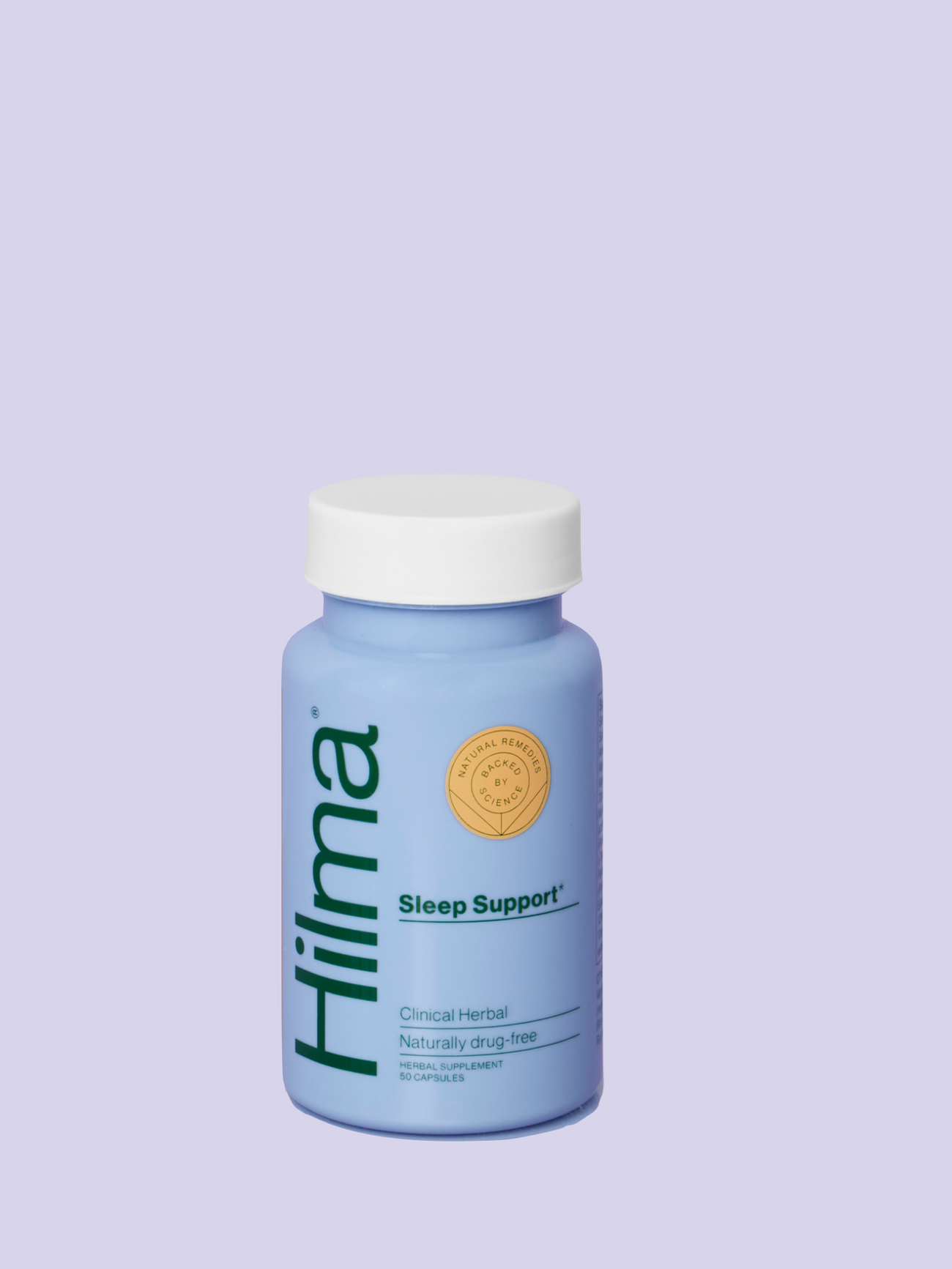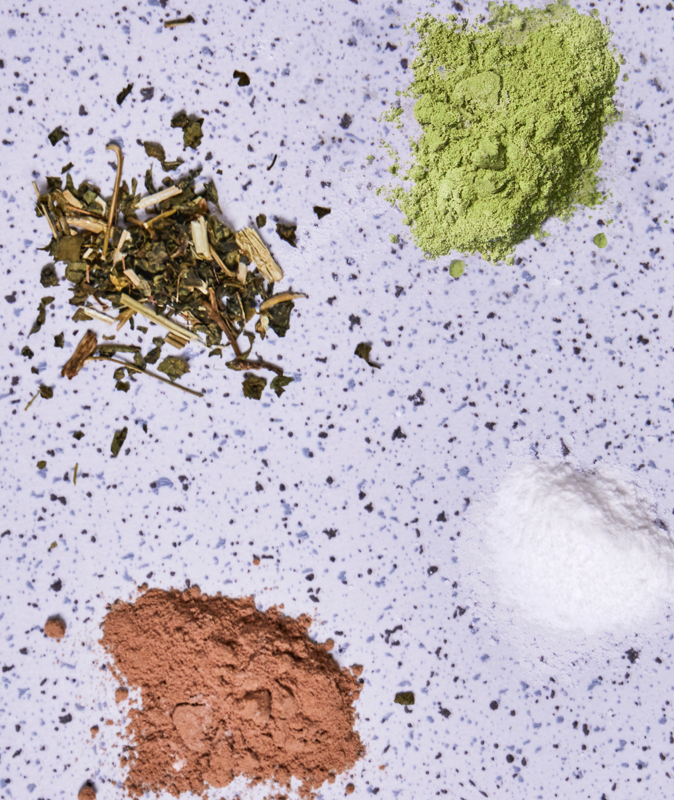To better understand the connection between sleep and gut health, we turned to our friend Dr. Nicole Marcione, a PhD and certified health & wellness coach. Here, she breaks down the science behind the sleep-gut connection and explains the benefits of a natural, melatonin-free approach.
Do sleep patterns impact your gut health and vice versa?
Yes! This relationship is bi-directional… it goes both ways. If we don’t sleep, our entire being doesn’t function optimally. This includes our brain, our mind, our body, and our gut. Being sleep deprived causes undue stress system-wide which not only leads to feeling bad and exhausted but affects how well we digest and absorb nutrients. When our gut is out-of-whack and our microbiome isn’t being properly cared for, it can affect our sleep. How is that? Well, some people may not know that most of our serotonin is made by the bacteria in our gut, up to 85% (depending on the research study). Serotonin is a main player in sleeping well: a building block of melatonin, which is a hormone that helps with sleep. So, if our gut isn’t producing serotonin, it is difficult for our body to make melatonin.
Can you explain the high level science behind how they are connected?
Our brain and gut are always communicating to each other, through multiple mechanisms including the Vagus Nerve and various hormones and other signaling cells. This is known as the “microbiota-gut-brain axis”. The gut has its own nervous system: the enteric nervous system and is called our “2nd brain”, because it has the most neurons (other than our brain) in our body, more than even our spinal cord! It makes sense that our gut has to be in control of a lot of decisions (i.e., what to let in, what to keep out, what is a foreign invader that can make us sick), as it’s the entry point for most things from the external world (think of your entire digestive tract starting with the mouth). If our brain had to process everything going on in our gut, we might not have as much capacity as we do to deal with other daily decisions, creative endeavors, and everything else our brain must keep track of. The field of scientific study regarding the microbiome, is still fairly new and more and more research is coming out every day on how these trillions of little bugs not only communicate with our brain, but also our immune system and can even influence our mental wellness, our decisions and our cravings!! A great book for those wanting to delve deeper into this connection is The Mind-Gut Connection by Dr. Emeran Mayer.
What is your gut doing when you sleep -- why is quality of sleep important for gut health?
Hopefully, nothing major! It’s important that we are not going to bed with a bunch of food that needs to be digested. Our body and brain do most repairing and “cleaning up” from the day while we sleep. If the energy that would normally be used to repair our organs is going towards digesting our dinner or midnight snack, our organs (especially our brain) will suffer. A good rule of thumb is to stop eating 3 hours before you go to bed, that way your digestion shouldn’t interfere with all the important activities that happen while we sleep.
What is the GABA system and how might it play a role in gut health, if at all?
GABA is an inhibitory neurotransmitter and decreases activity in our nervous system. In this context of sleep, it helps to calm our system and prepare us for sleep. It can be found in some fermented food and is also used as a supplement, usually for anxiety. Like serotonin, recent studies have found that our gut microbiome also produces GABA. So having a healthy gut and happy bacteria will keep them producing many neurotransmitters, hormones, and other essential metabolites that we need to exist.
Why is a natural approach important for sleep?
We live in a society that is very dependent upon pharmaceuticals and over-the-counter meds for everything, including sleep. While sleep medications are sometimes necessary, it’s important to not become dependent upon them. There are many other approaches that can be tried before going straight to a prescription drug. Sleep hygiene is a term that we’re seeing more and more. Sleep hygiene is basically things we can do to promote sleeping well on a regular basis. It includes creating the right environment for sleep, winding down before bed, putting away electronic/digital devices before you go to bed, wearing blue-light blockers, not eating, or drinking too close to bedtime, just to name a few natural (non-pharmaceutical) approaches. Also, for those with insomnia and other sleep disorders, there is a specific type of cognitive behavioral therapy (CBT-I) that has been found to be useful
What are the benefits of NOT using melatonin?
As we mentioned above, melatonin is a hormone that signals our body that it’s time to sleep. Any time we take a hormone, our body may not process it the same as when we produce it ourselves. That is why some sleep experts/doctors prefer their patients to take something that can support the body in making its own melatonin, like serotonin, which is found in some sleep aids/supplements.
What herbs/natural ingredients can help support healthy sleep?
Serotonin, GABA, B-vitamins (building blocks for GABA and serotonin), 5-Hydroxytryptophan (5-HTP), magnesium (careful though, certain types and/or too much can cause diarrhea). Lavender, chamomile, valerian root, lemon balm, passionflower, and hops are some herbs that help with sleep.
What are 3 lifestyle tips/practices you would give to someone who is looking to try a natural approach to sleep?
-
Find ways to improve stress resilience. Most people that have a difficult time falling and/or staying asleep are dealing with high levels of stress and anxiety. Explore what works best to help cope with stress: a bath, a walk, meditation, therapy, journaling…it’s different for everyone.
-
Move your body (but not too late). Exercise is great for many things, including sleep. Just be careful not to exercise to close to bedtime, as you’ll feel energized instead of sleepy!
-
Get outside, especially in the morning sun. Not only is this a natural way to increase our melatonin levels naturally, but also stimulates Vitamin D, which many in the US are deficient in.
Note: This information is for educational purposes only, and should not be taken as medical advice. Please consult your physician before treating any disorder.




